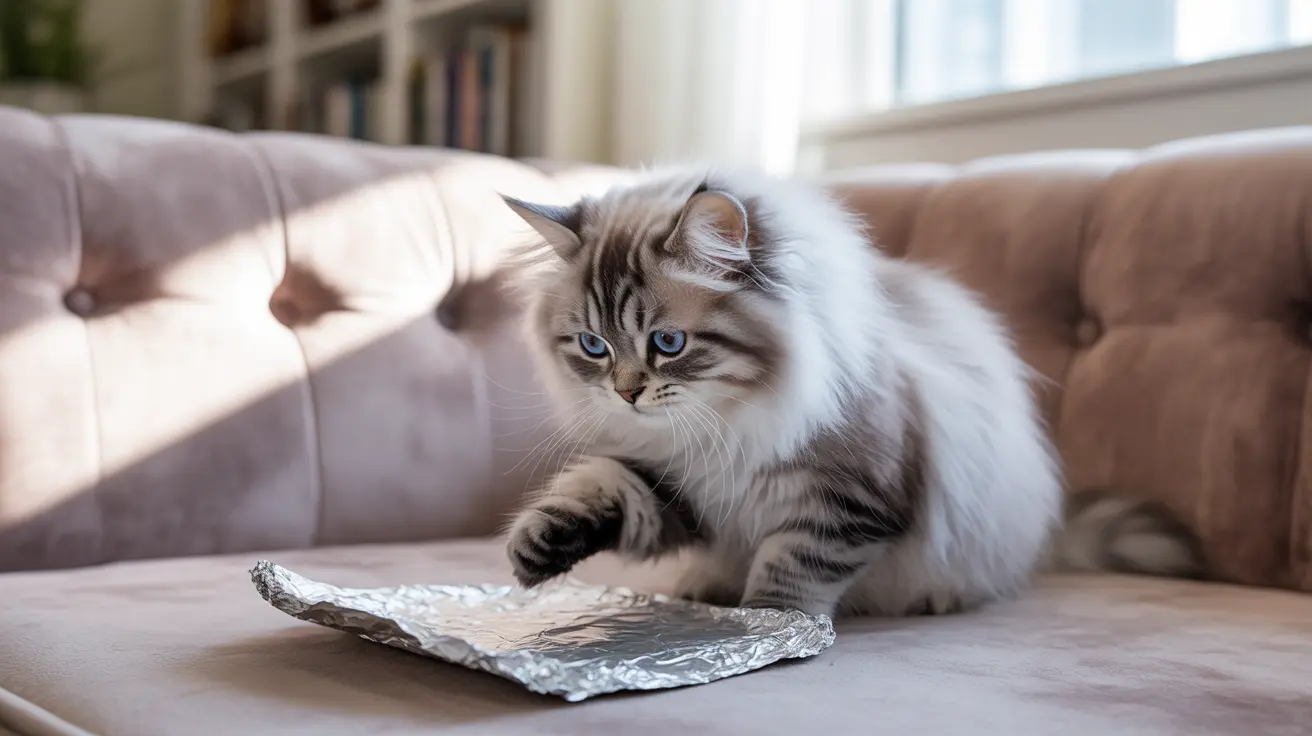Is your beloved feline turning your couch into their personal bathroom? This frustrating behavior can leave pet owners feeling helpless and confused. Whether triggered by medical issues, stress, or litter box problems, understanding why cats pee on furniture is the first step toward solving this common issue.
In this comprehensive guide, we'll explore effective solutions to stop your cat from peeing on the couch, addressing both immediate concerns and long-term prevention strategies. Let's help you and your furry friend get back to a harmonious household.
Start with a Veterinary Check-Up
Before attempting behavioral modifications, schedule a veterinary examination. Medical conditions like urinary tract infections (UTIs), bladder stones, or kidney disease often cause inappropriate urination. Your vet can rule out these health issues, which require immediate treatment for the behavior to improve.
Clean and Deodorize Thoroughly
Cats are drawn back to spots where they've previously urinated. Using specialized enzymatic cleaners is crucial for breaking down urine molecules completely:
- Use enzyme-based cleaners specifically designed for cat urine
- Clean affected areas multiple times if necessary
- Allow cleaned areas to dry completely
- Avoid ammonia-based products, which can attract cats back to the spot
Create an Ideal Litter Box Environment
Many cats avoid their litter boxes due to unfavorable conditions. Optimize your cat's bathroom setup with these guidelines:
- Provide one litter box per cat, plus an extra
- Place boxes in quiet, accessible locations
- Clean boxes daily and replace litter regularly
- Experiment with different litter types and box styles
- Ensure boxes are large enough for comfortable use
Address Environmental Stressors
Cats often pee on furniture when feeling anxious or threatened. Common stressors include:
- Changes in household routine
- New pets or family members
- Visible outdoor cats
- Loud noises or construction
- Limited access to resources
Implement Deterrent Strategies
While working on long-term solutions, these deterrents can help protect your furniture:
- Cover couches with aluminum foil or plastic sheets
- Use natural citrus sprays around furniture (never essential oils)
- Place food bowls or treats near previously soiled areas
- Install motion-activated air sprayers near furniture
- Use Feliway or other calming pheromone products
Encourage Proper Litter Box Use
Positive reinforcement helps establish good habits:
- Reward your cat with treats after proper litter box use
- Keep the path to litter boxes clear and accessible
- Consider temporary confinement to a small area with easy litter box access
- Never punish accidents, as this increases anxiety
Frequently Asked Questions
How can I stop my cat from peeing on the couch due to stress or anxiety?
Address potential stressors, provide environmental enrichment, use calming pheromone products, and consider consulting a feline behaviorist for severe cases.
What medical issues should I check with a vet if my cat is peeing on furniture?
Have your vet check for UTIs, bladder stones, kidney disease, diabetes, and arthritis, as these conditions commonly cause inappropriate urination.
What is the best way to clean and remove cat urine odor from a couch?
Use enzyme-based cleaners specifically designed for cat urine, thoroughly saturate the area, and allow it to dry completely. Repeat if necessary to fully eliminate odors.
How do I make the litter box more appealing to prevent my cat from peeing on the couch?
Keep boxes clean, try different litter types, ensure easy access, provide multiple boxes, and place them in quiet locations away from food and water sources.
What home remedies or deterrents can help keep my cat from urinating on the couch?
Use aluminum foil, citrus sprays, double-sided tape, or plastic covers on furniture. Place treats or food bowls near previously soiled areas to discourage elimination there.
Remember, resolving inappropriate urination takes patience and consistency. If problems persist despite these interventions, consult a feline behavior specialist for personalized guidance. With proper medical care, environmental management, and positive reinforcement, most cats can successfully return to proper litter box habits.






